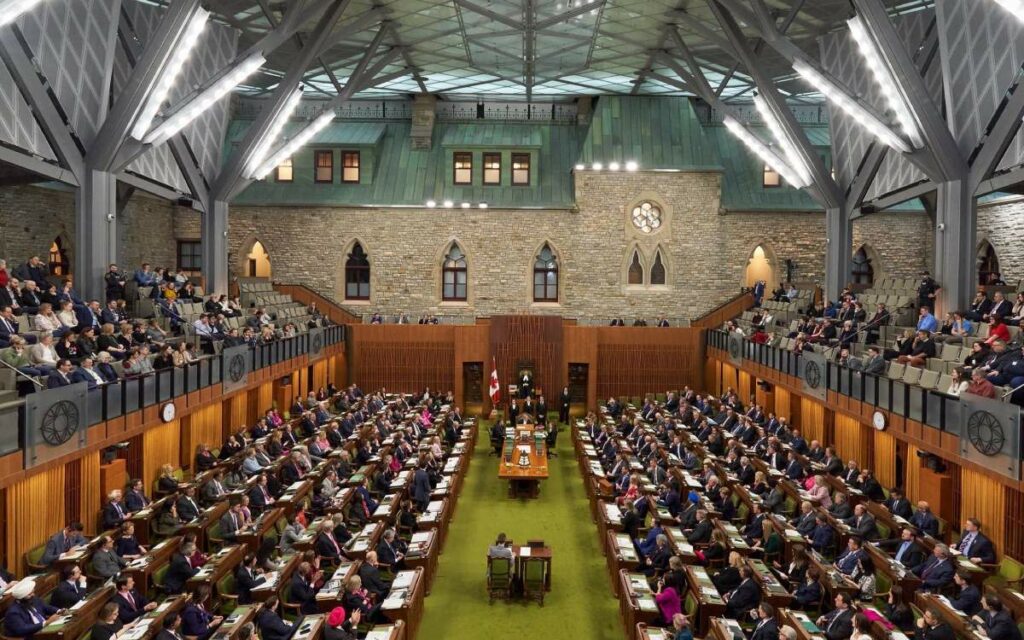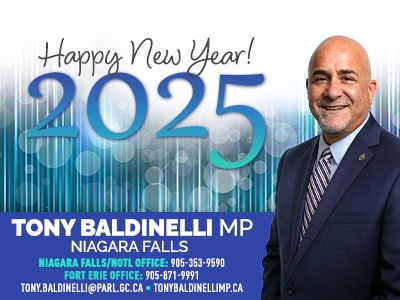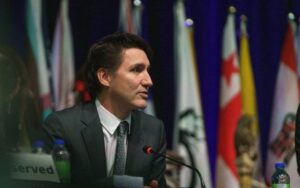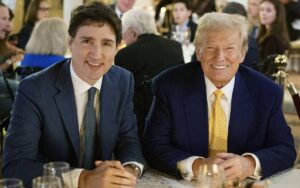
It is hard to compete with the perks of being a federal politician. Between the pay, pension, publicity, expense account, office budget, domestic and international travel, and staff, an elected MP basically does not have to spend a cent of their own money while in office. Photo credit: Parliament of Canada
As the largest strike among Canada’s civil servants in history enters its second week, progress seems stalled at the top between union leaders and the government.
More than 120,000 Public Service Alliance of Canada (PSAC) core government members have been on strike since last Wednesday, and it’s business as usual for parliamentarians in Ottawa.
There are picket lines on Parliament Hill, outside the Prime Minister’s Office, and the Office of the President of the Treasury Board, but despite this, it does not seem like the government is looking to end this strike and bend to the demands of PSAC anytime soon.
The demands of a 13.5 per cent raise over three years and the right to hybrid work are a bit rich for a government that is trying to appear fiscally responsible, despite giving themselves a pay raise every year since the pandemic started.
Just earlier this year, MPs received an extra $5,100 on their paycheck, while the Prime Minister gave himself a raise of over $10,000. It is no wonder that he can afford a lavish Christmas vacation in Jamaica while the average Canadian struggles to afford presents under the tree.
Admittedly, the job of a parliamentarian is hard and tiring. The amount of travel and time away from family can be exhausting. The criticism and online hate that some politicians face is unhealthy on a good day and downright nasty on a bad day. Public life comes with a trade-off of privacy and the right to grocery shop without being approached with ideas on how to do the job better.
However, the upside of being an elected Member of Parliament has some benefits. Parliamentarians have a front-row seat and the power to mould Canada and support their communities. Whether that is new infrastructure funding to build a bridge in their home riding or to amend legislation at committee, elected officials can point to a number of accomplishments once out of office.
Life outside of the elected office can be hard for some politicians. It is one of the reasons why they often continue to run for things until they are elected again. Look at the last election in Ontario, the two-party leaders who lost left their parties and became mayors. There are countless other examples of federal politicians getting the boot by voters and running in provincial elections, local races, and vice versa.
However, it is hard to compete with the perks of being a federal politician. Between the pay, pension, publicity, expense account, office budget, domestic and international travel, and staff, an elected MP basically does not have to spend a cent of their own money while in office. Taxpayers subsidize their lifestyle in many ways, including allowing for their spouses and other family members to travel to Ottawa to be with them. Some politicians really take advantage of this.
The biggest kicker when elected to Ottawa is what happens if a politician gets the boot by voters or decides not to run again. If an MP does not meet the six-year pension threshold, they are entitled to over $92,000 in severance, a relocation benefit, and a year of free personal and financial counselling for them and their families. As well as $15,000 to support their career transition through further education for up to 12 months after their time in office.
Due to COVID, this fund was extended and allowed for former politicians to use it longer. Recent reports show that former politicians are not shy about using this either. Some have even maxed out the program through American universities.
When it is all added up, politicians are expensive. In the next election, Canadians should think about if they are getting a good return on investment and vote accordingly. Though given how good the exit benefits are, some politicians may not mind returning to Ottawa.
In the meantime, as politicians are trying to nickel and dime PSAC in the name of saving the taxpayer money, they should look around their taxpayer-funded life themselves because not all Canadians have it as good as they do. Some are relining on their tax return or carbon tax rebate to get by. With the strike ongoing, there is no one to process the payments and everyday Canadians are being hung out to dry.

Daniel Perry is a Senior Consultant with Hill & Knowlton, Canada’s leading public relations and public affairs firm. He is an experienced campaigner and has provided political advice at all levels of government. Daniel has received a number of awards during his career including being voted Ottawa’s top consultant by his peers.




















